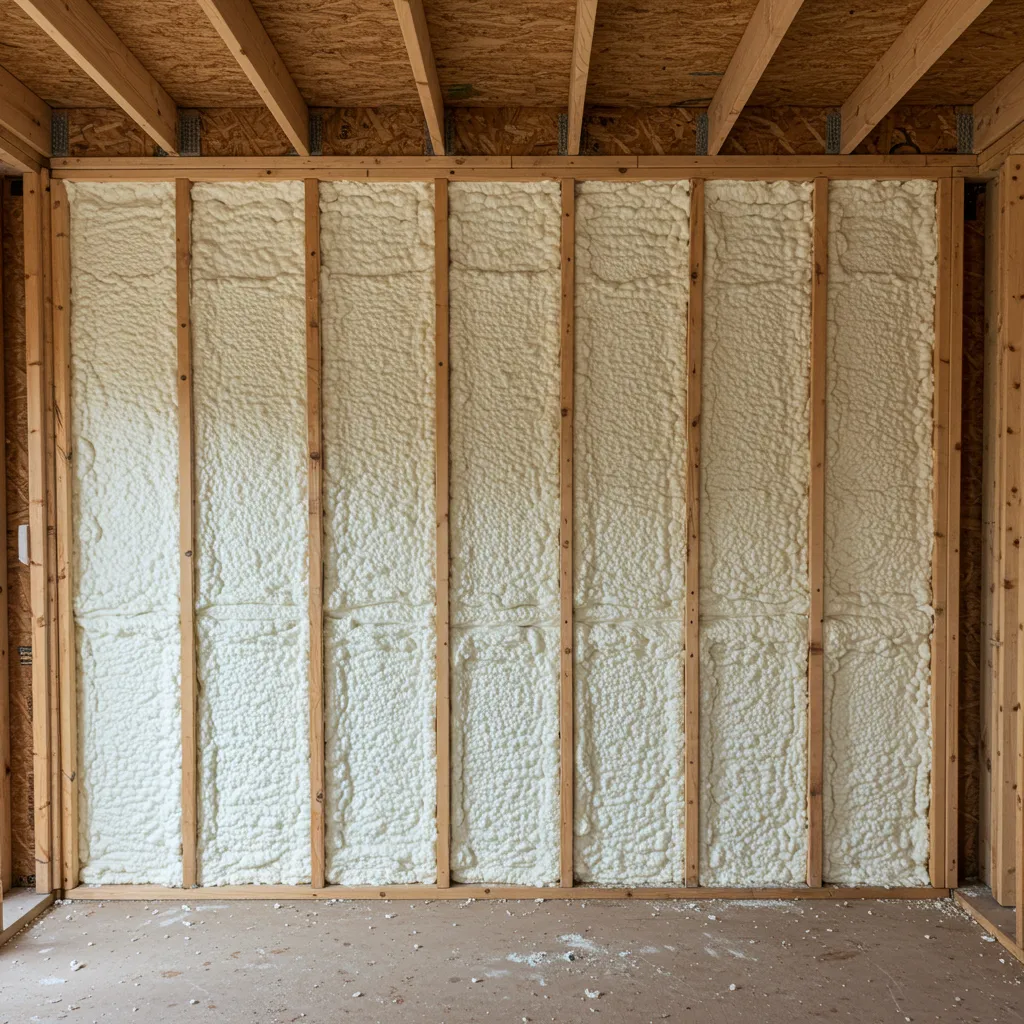Selling a home involves many considerations, and one of the factors that can influence the process is the type of insulation used. Spray foam insulation is known for its energy efficiency and durability, but does it make selling a house more difficult? This article explores whether having spray foam insulation impacts the sale of a home, discussing both the advantages and potential challenges sellers may face.
Understanding Spray Foam Insulation
What Is Spray Foam Insulation?
Spray foam insulation is a popular insulation method that expands upon application to fill gaps and create an airtight seal. It comes in two types:
- Open-cell spray foam: Lighter and more flexible, allowing some air and moisture penetration.
- Closed-cell spray foam: Denser, providing superior insulation and moisture resistance.
Benefits of Spray Foam Insulation
- Energy efficiency: Reduces heating and cooling costs by minimizing air leakage.
- Moisture resistance: Prevents mold growth and structural damage.
- Improved indoor air quality: Blocks allergens and pollutants.
- Longevity: Lasts longer than traditional insulation types such as fiberglass or cellulose.
Does Spray Foam Insulation Affect Home Sales?
Advantages of Selling a House with Spray Foam Insulation
- Increased Home Value
- Energy-efficient homes often sell for a premium.
- Buyers looking for lower utility bills see spray foam as a strong asset.
- Enhanced Structural Integrity
- Closed-cell spray foam strengthens walls and roofing, making the home more durable.
- Appealing to Energy-Conscious Buyers
- The growing demand for green homes makes spray foam insulation an attractive feature.
Challenges of Selling a Home with Spray Foam Insulation
- Perception and Misconceptions
- Some buyers are unfamiliar with spray foam and may have concerns about safety or off-gassing.
- Cost Concerns
- While it provides long-term savings, buyers may worry about replacement costs if repairs are needed.
- Improper Installation Issues
- If not installed correctly, spray foam can cause ventilation issues or lead to moisture buildup.
Factors That Influence Marketability
1. Location Matters
- In hot climates like Fresno, CA, spray foam insulation helps maintain indoor temperatures, making homes more appealing.
- Areas with high humidity benefit from closed-cell foam’s moisture resistance.
2. Home Inspection and Disclosure
- Buyers often request a home inspection. Ensuring proper installation and providing documentation can alleviate concerns.
- Full disclosure of insulation type and benefits builds trust with potential buyers.
3. Energy Ratings and Certifications
- Homes with Energy Star or LEED certifications gain an advantage in competitive markets.
- Providing proof of energy savings can be a strong selling point.
How to Overcome Selling Challenges
Educating Potential Buyers
- Highlight the benefits of spray foam in marketing materials.
- Provide comparative energy cost savings data.
- Address common misconceptions upfront.
Hiring a Professional Assessor
- A certified inspector can evaluate the insulation and provide a report to ease buyer concerns.
- If issues exist, resolving them before listing can prevent sales delays.
Staging and Marketing Strategies
- Showcase the home’s energy efficiency with a focus on lower utility costs.
- Use real estate listings to emphasize spray foam insulation as a premium feature.
- Work with realtors who understand the benefits of spray foam insulation.
Comparison: Spray Foam vs. Other Insulation Types
| Insulation Type | Energy Efficiency | Durability | Moisture Resistance | Common Concerns |
| Spray Foam (Closed-Cell) | High | 30+ Years | Excellent | Initial Cost, Installation Complexity |
| Spray Foam (Open-Cell) | Moderate | 30+ Years | Limited | Air & Moisture Permeability |
| Fiberglass | Moderate | 10-15 Years | Low | Can Retain Moisture, Less Effective Insulation |
| Cellulose | Moderate | 20-30 Years | Low | Settles Over Time, Fire Risk |
| Rock Wool | High | 25+ Years | High | Costlier than Fiberglass |
Conclusion
Selling a home with spray foam insulation presents both advantages and challenges. While some buyers may hesitate due to unfamiliarity, educating them about the long-term benefits of energy efficiency, durability, and cost savings can enhance marketability. Proper disclosure, professional assessment, and strategic marketing play a crucial role in ensuring a smooth selling process.
Contact Us Today!
For expert advice on spray foam insulation and how it impacts home sales in Fresno, CA, reach out to Fresno Spray Foam Insulation Masters for professional assistance.
Frequently Asked Questions
Is spray foam insulation safe for homes?
Yes, when installed correctly by professionals, spray foam insulation is safe and does not emit harmful gases once cured.
Does spray foam insulation increase home value?
Yes, homes with spray foam insulation often have higher resale values due to increased energy efficiency and durability.
Can spray foam insulation cause moisture problems?
Improper installation can trap moisture but correctly installed closed-cell foam acts as a moisture barrier.
Are there financing options for homes with spray foam insulation?
Many energy-efficient mortgages and rebates support homes with high-performance insulation like spray foam.
How can homeowners prove the benefits of spray foam insulation?
Providing energy bills, insulation warranties, and home inspection reports can help validate its advantages.
What should sellers disclose about spray foam insulation?
Homeowners should disclose the type of spray foam used, the installation date, and any warranties available.
Do buyers need special home insurance for spray foam insulation?
Most home insurance policies cover spray foam insulation without additional requirements, but checking with the insurer is advisable.
How can sellers market their homes with spray foam insulation?
Emphasizing energy savings, durability, and environmental benefits in listings can attract interested buyers.
Is spray foam insulation allowed in all home types?
Yes, but some historic homes may have restrictions on modifications that include spray foam installation.
Can spray foam be removed or replaced?
Yes, but it can be costly and labor-intensive. Properly installed spray foam rarely needs removal.




